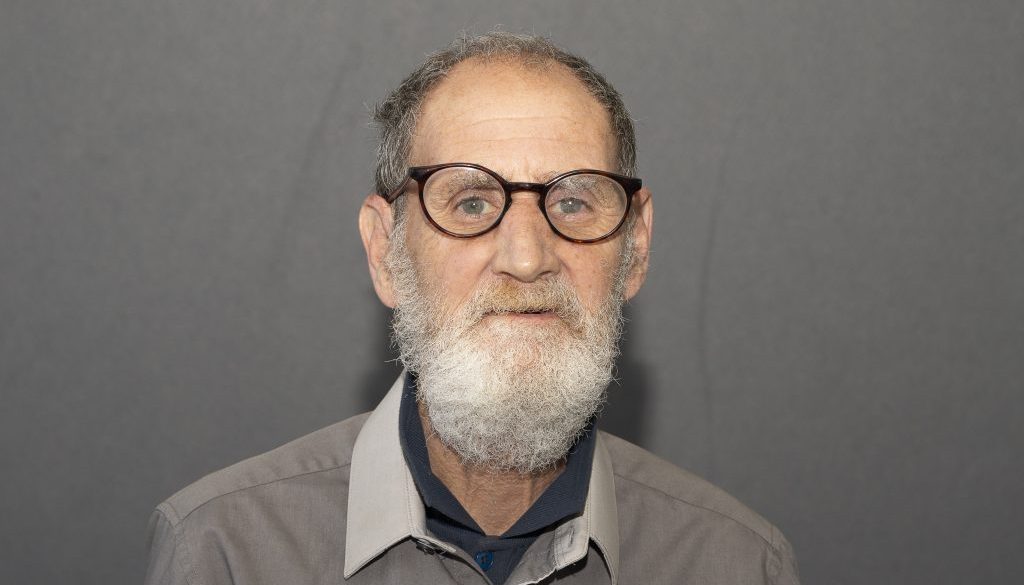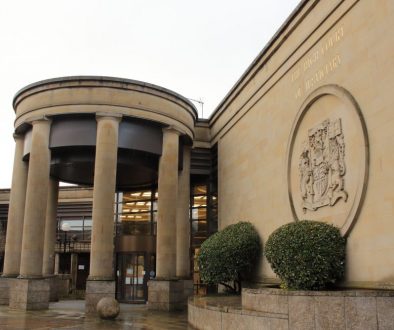Robert Brown – An Appreciation
Robert Brown has died in a Glasgow hospital, after a short illness. He was three days short of his 67th birthday.
In his final days, Robert was in the tender and compassionate care of the Vascular Department at the Queen Elizabeth University Hospital. Our heartfelt thanks are offered to the wonderful staff there, for their tireless care and attention.
Relentlessly active in a lifelong struggle against injustice, its causes and its effects, Robert’s was a clear, resounding voice that rose above the chorus. It demanded respect, because it came from his own lived experience. It came from the dehumanising and brutal abuse that he suffered, with remarkable forbearance, for the 25 years that he was, in his own words, “buried alive”. It came from the lasting trauma that endured from the day of his wrongful conviction until the hour of his passing. Like so many who have suffered injustice at the hand of the state, release from prison was a matter of geography only. He was never actually free. The terrible reality of his experience was itself a prison from which there was to be no release.
Robert was 19 when convicted of a murder that he didn’t commit, framed by police whose grotesque corruption is now a matter of record, and let down by a justice system that failed, utterly, to deliver justice. These factors are not unique to our Robert, but his was, nevertheless, a case apart. Encouraged to seek parole 13 years into his life sentence, he refused to do so. His reasoning was simple; release on licence, with its attendant obligation, and subjugation, to the very system that had framed him, would be tantamount to an admission of guilt. Robert was only coming out on his exoneration, or on his death. In the event, he served a total of 25 years, until his conviction was finally quashed by the Court of Appeal. For the “extra” 12 years the prison authorities, to mark their displeasure at his defiance, removed his bed and bedding from his cell. Robert slept on the bare concrete floor, covered by a coat. When he finally came out, and until the day he died, he demanded, for himself, only an apology for the harms done to him, and the official restoration of his innocence. In these modest aspirations he was, of course, frustrated. And for the rest of his days he slept on the floor.
There’s a stark contrast here. Between the integrity of the individual, alone against the might of the machine that vilified, abused and stigmatized him, and yet prepared to endure many extra years of Hell on a point of simple principle, as against that of those who dishonestly condemned him. Robert Brown was a courageous and principled man. The other lot? I leave that to you. Robert lived, and died, the defiant but unredeemed victim of a legal and political establishment that cared as little for truth or justice as it did for his humanity. He cried out for justice; they did not listen.
Robert came to MOJO shortly after his release from prison, and through his friendship with Paddy Hill, whom he had met inside. He never left us. We will remember him with love, and as much more than a MOJO service user. He was our family, as we were his. He engaged in many ways with the work Paddy had started here. The experience of dozens of our student volunteers has been enriched by his spontaneous and unscripted lectures on the true nature of the criminal justice system that those same students will soon inherit. For Robert, the issues were simple. Our criminal justice system – investigation, prosecution, defence and appeal – needs fundamental reform, to prevent others from experiencing the injustice and the suffering so long endured by him. Fate bestowed on him a role he hadn’t sought: the embodiment of the catastrophic failure of the system at every level, and of the destructive force of that failure. He played that role with great humility, and to powerful effect. His views were constantly sought by, and enthusiastically delivered to, print, digital and broadcast media. He spoke eloquently at many conferences, where his simple authenticity lent enormous force to his words. He spoke at universities, and even at parliaments. Wherever he spoke, his audience listened.
With Robert’s passing, the voice of the innocent is neither as loud, nor as articulate today. The stridency and the passion of Robert’s contribution are a huge loss to the conversation we need to be having. They may never be replaced.
May you rest in peace, Robert.

![16[2]](https://mojoscotland.org/wp-content/uploads/2024/06/162-1024x768-394x330.jpg)

